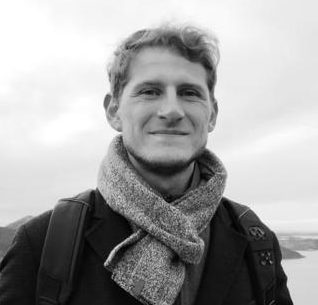
The Global Compacts and the Long Journey of the Refugee Regime
By Dario Mazzola, Executive Scientific Coordinator of PROTECT
From the definition of refugees to the practical implementation of the right to asylum, refugee regimes are an issue leading to sharp political divisions or outright stand-off in a number of countries. Is this no-exit-road impression the truth of the matter, and what are the prospects of the Global Compact in this not-so-rosy scenario?
The path from anarchy to justice must go through injustice.
Thomas Nagel
I often claim that the so-called 2015 refugee crisis has passed without being solved, or even just understood. Of course, in academia we have a host of theories available to reconstruct its details and explain its dynamics: yet the conflicts in the public arena, be they factual and empirical (what happened exactly?), normative (what should we do about it?), or interpretative (and what does this mean more deeply and more generally?) are hardly quenched by any of them.
In my commentary on the 2020 EASO report, I suggest that the relative, momentary freeze in interest towards asylum seekers’ inflows is related to external factors, such as the COVID-19 crisis with all its heavily impacting consequences, or to precarious equilibria, such as the EU-Turkey deal of March 2016. If I were to show further proof for my persuasion that some of the unsolved questions it raised are inescapable in the long run (but isn’t it self-evident?)
I might pick-up The Lancet‘s recent article on global demographics. This much and much rightly debated piece reminds, among other most interesting things, that revolutionary changes in world population will continue to make migration paramount in the world to come, including in its “conflicts and natural disasters”-induced form that is refuge.
If instead of looking at 2100 we’d rather benefit from the hindsight of millennia of civilization, it is all the more evidently true that asylum and the moral problems it raises have been of continuous interest to humanity. True, the predicaments of refugees were rarely noticed by élite culture – with notable exceptions, including Virgil– but the right to hospitality has been discussed by illustrious thinkers through a seamless stretch of centuries. Their names include Francisco De Vitoria, Francisco Suárez, Samuel von Pufendorf, Emer de Vattel1, on to Immanuel Kant, who famously made world citizenship consist in a right to “universal hospitality” in his Perpetual Peace2.
What is perhaps the most illuminating takeaway of an otherwise much diverse and somewhat obscure history of moral and political thought is that these thinkers basically agreed on the existence of a right to refuge, usually presented in the shape of a natural right, as well as on the urgency and substantiality of the moral and legal demands it imposed. While they disagreed on the precise circumstances by which such a right was generated, and also on the much more relevant question of its priority over national sovereignty, claiming that they went impressively close to contemporary conceptions of the right to asylum is still fair to a debate to whose richness I cannot do full justice here.
There is an all-changing watershed, however, between them and us, and it is the fact that, after World War II and the Declaration of Human Rights, we have entered the age of “cosmopolitan norms of justice”. What Seyla Benhabib explains by deriving this phrase from Hannah Arendt is that, after the catastrophes of extreme nationalism3 which occurred in the past century, moral and even political rights, such as human rights and the right to asylum, have finally been disentangled from the framework of the individual state – in theory and sometimes, albeit rarely, even in practice.
Sure, the story cannot be made too simplistic (and naively optimistic) by leaving out many of the questions which remain open in fact: national citizenship is still the major purveyor of rights, and history only sometimes arrives at global justice through global violations, as Thomas Nagel has it: it indulges as often in frustratingly Turning Back the Clock, as the late and disillusioned Umberto Eco put it. More specifically on asylum governance: do we hold on to the faith that European institutions are “Failing Forward Towards” the better, or should we investigate whether there’s also a risk of failure, period?
In this unpredictable historical narrative, asking about the impact of the 2018 Global Compact on Refugees already in 2020 sounds a bit like wondering about the accommodation at the port while still in the midst of the tempest. Yet two features seem to stand out on that background: that the Global Compact is a restatement and a firmer entrenchment of the traditional right to asylum in a more fully developed and more firmly grounded global rights regime, and that it has a deliberately open meaning (as witnessed by its non-binding nature) which will be greatly dependent on the output of the processes is started, such as the Global Refugee Forum.
The goal of our PROTECT project is to grasp better on the former, and to contribute substantially to the latter: both are ways to put the Compact to the good use it had or should have had been intended for.
1These are among the prominent names selected in the short history of migration and refugee rights included in Vincent Chetail, international Migration Law, Oxford University Press, Oxford 2019. The motivated reader will find in this synthesis some of the underpinnings of the more general claims I expound over here
2 As the title and substance of Jürgen Habermas’s comment show, this intervention by Kant is hardly less topical nowadays: “Kant’s Idea of Perpetual Peace: At Two Hundred Years’ Historical Remove”, reprinted in The Inclusion of the Other, Ciaran Cronin and Pablo De Greiff eds., MIT Press, Cambridge 2000, pp. 165-202.” The article I refer to is available (on a Norwegian website among many other, as it is an often-consulted article)
3 Jean Monnet’s belief that “there will be no peace in Europe if states are rebuilt on the basis of national sovereignty”, expressed in his Algeri speech of August 5, 1943, is but among the clearest acknowledgments of this historical change.”
Meet Dario Mazzola

Dr. Mazzola’s field of specialization is Migration Theory, and his research casts light on current issues by addressing them from a multidisciplinary perspective forged by the encounter between Political Theory, Political Sciences, and Ethics of International Relations. Dr. Mazzola works on activating, harmonizing and synchronizing Protect’s activities, particularly in the more theoretical Work Packages, such as WP1. His coordinating role is especially focused on WP4.
Also read:
> Meet PROTECT’s Bergen team
> Dr. Mazzola’s comments on the 2020 EASO Report
